Iran Cannot Set New Conditions For Resuming Nuclear Talks - Germany
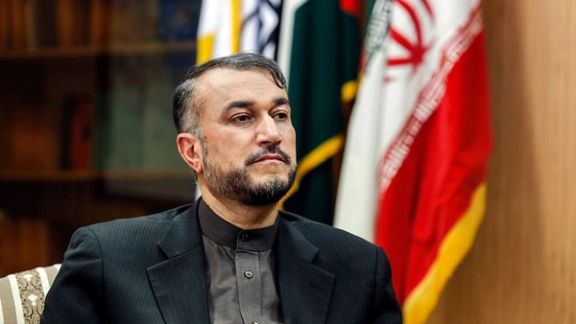
Germany rejects Iran's demands for the US to release frozen Iranian assets as a condition for nuclear talks to resume, German foreign ministry said on Monday.

Germany rejects Iran's demands for the US to release frozen Iranian assets as a condition for nuclear talks to resume, German foreign ministry said on Monday.
"Iran cannot set any further conditions for resuming the talks," a German foreign ministry spokesman said after Iranian foreign minister Hossein Amir-Abdollahian's demand for assets worth 10 billion dollars to be released as a goodwill gesture.
Under President Donald Trump, the United States unilaterally withdrew from the 2015 agreement with Iran, Britain, France, China, Russia and Germany aimed at stopping Iran from developing a nuclear weapon.
President Joe Biden aims to restore the deal, but the sides disagree on which steps need to be taken and when, with the key issues being what constraints Tehran will accept and what sanctions Washington will remove.
"We call on Iran to resume talks as soon as possible," the German foreign ministry spokesman said, adding he expects an agreement on a specific date.
Report by Reuters

Amid fresh Azerbaijani assertiveness after the 2020 Nagorno-Karabakh war, the Armenian foreign minister, landed in Tehran Monday to confer on regional tensions.
At a joint news conference with Iranian foreign minister Hossein Amir-Abdollahian, Ararat Mirzoyan stressed Yerevan’s commitment to the Minsk process − chaired by France, Russia and the United States, and involving Iran − to deal with issues left unresolved by the war.
Mirzoyan said he had briefed Amir-Abdollahian on current developments, including efforts to build new transit roads to connect Iran and Armenia, as well as on the role of foreign "mercenaries" in the Karabakh war. Turkish, which reportedly sent in Sunni militiamen from Syria during the war, begins Tuesday army exercises along the border.
Amir-Abdollahian, who noted this was his third meeting with his Armenian counterpart in as many weeks, said that the “region and our northern neighbors” were “in dire condition, particularly due to the presence of Zionists and terrorists...”
Relations between Iran and Azerbaijan have been in flux since last year’s Armenia-Azerbaijan war over the disputed enclave of Nagorno-Karabakh. But the atmosphere soured last month when Azerbaijan arrested two Iranian truck drivers for entering Azerbaijan from Armenia through the Goris-Kapan road "without a permit.”
The road, connecting the towns of Goris and Kapan in the Armenian region of Syunik, runs through territory that Baku regained control over with the Russian-brokered deal ending the six-week Armenia-Azerbaijan war. Azerbaijan has been stopping Iranian truck drivers using the road both to reach Armenia and markets further north, and levied a $130 tax.
The Armenian government has offered Iran an alternative route through Tatev, but Iranian news agencies say this is unsuitable for heavy trucks carrying commodities like bitumen.
Tehran is also concerned over Turkey’s military and diplomatic backing for Azerbaijan. In a speech Sunday, Iran's Supreme Leader Ali Khamenei reminded Turkey that "the person who digs a well [to trap] his brothers is the first one to fall into it."
Mojtaba Zulnuri, a conservative member of the Iranian parliament’s National Security and Foreign Policy Committee, said Monday that Azerbaijan and Turkey would be "slapped hard if they want to threaten Iran's interests."
Previously, Iranian officials had generally avoided mentioning Turkey's role while expressing disquiet over Israel’srelations with Azerbaijan, which have included arms supplies and reportedly access to Azeri airfields.
In response to such remarks, Leila Abdullayeva, spokesperson for the Azeri foreign ministry, Monday denied “the presence of third-country forces near the Azerbaijan-Iran border” or any “provocation” by such forces.
Lurking in the background for Tehran is a fear of wider changes that might result from unresolved issues between Armenian and Azerbaijan. Tehran has been carrying out its own large-scale military exercises and has repeatedly warned it will not tolerate any geopolitical changes.
Armenian prime minister Nikol Pashinian Sunday criticized sections of the Iranian press for alleging Yerevan planned changes detrimental to Iran. "Armenia has never been and will never be involved in any conspiracy against Iran, because we extremely value those relations and we will never forget that Iran was the path of life for Armenia in the early 90s," he said.
But the Azeris have put forward their own demand for a ‘land corridor’, in this case through Armenia to link Azerbaijan’s western regions with Nakhchivan. Armenian Security Council Secretary Armen Grigoryan said October 2 that while Yerevan might open its roads to Azerbaijan and Turkey, it would retain control with no "sovereign corridor" inside Armenian territory. Grigoryan said existing infrastructure, including the Yerevan-Tbilisi-Baku-Russia railway, could facilitate such trade.
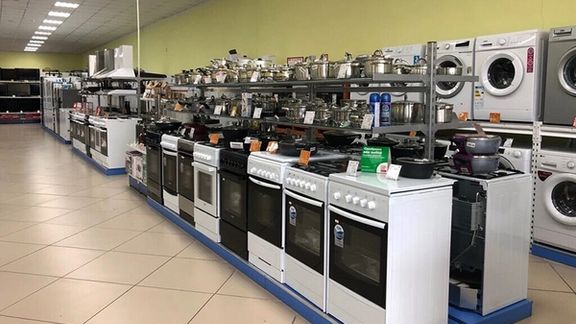
State-controlled media in Iran continue to defend a ban on South Korean home appliances, saying that the move was a “diplomatic message” to South Korea.
After a letter from Iran's Supreme Leader Ali Khamenei on September 6, President Ebrahim Raisi called on his ministers not to allow imports from South Korea’s LG and Samsung. Khamenei’s order was explained in the letter as defending local manufacturers against foreign competition.
But the Iranian Students News Agency (ISNA), a government-controlled website on Monday openly argued that Khamenei’s move was a diplomatic message to South Korea that hold around $7 billion in Iranian frozen funds. Korea was a buyer of Iranian oil until former US president Donald Trump in May 2019 expanded sanctions he had imposed a few months earlier on Iran to include all oil exports. Korea stopped buying Iranian oil but payments still pending were frozen by two Korean banks.
Most major news websites in Iran on Monday continued to cover the issue of the ban and justifying it on various grounds. On social media Iranians also continue to debate the issue, with many saying that instead of helping local industry it will add to their inefficiency in the absence of strong competition.
One Twitter user has argued that Khamenei’s interference in this matter is below his status and he should have left it to other government officials to issue the ban. But that is exactly the point. ISNA insists that Khamenei wanted his ban to take on a diplomatic message to Korea.
The ban followed speculation for some months that a reported agreement over using Iranian money frozen in Korean banks to buy humanitarian goods might be extended to cover Korean-made home appliances, which dropped out of the Iranian market when the United States introduced stringent banking sanctions in 2018.
ISNA in its Monday article called the idea of importing Korean home appliances as repatriation of Iran’s frozen funds “is insulting”.
ISNA also insists that Iranian officials at the time made it clear that Samsung and LG will be punished one day when they decide to return to Iran’s market. Others back Khamenei’s decision by arguing that it is not a sound business decision to accept Korean home appliances in lieu of the frozen funds. Iran prefers cash, but it is politically hard for the Biden Administration to authorize cash flowing to Tehran.
Nuclear talks between Iran and Western powers in Vienna are in suspension mode as Tehran has so far refused to return to the negotiations. It is trying to obtain cash as a price for its return, most probably to claim victory in the talks. But opposition to such a move in the United States would be strong, refreshing memories of the Obama administration sending cash dollars on pellets to Tehran in 2016 to free hostages.
A pattern emerges as Iran’s foreign minister Hossein Amir-Abdollahian said in a television interview on Saturday that he refused to have any contact with American officials during his September trip to the UN in New York, telling them that first the US should free $10 billion of Iran’s frozen funds.
"The Americans tried to contact us through different channels (at the UN General Assembly) in New York, and I told the mediators if America's intentions are serious then a serious indication was needed...by releasing at least $10 billion of blocked money," he said.
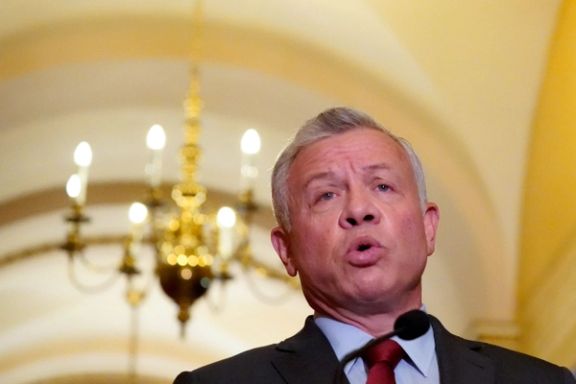
In a major move to reduce the isolation of his regime, Syria’s Bashar al-Assad called Jordan’s King Abdullah on Sunday, for the first time in a decade.
Jordan’s king has been advocating normalization of relations with Assad, calculating that the Syrian leader was there to stay. Jordan opposed Assad as a bloody civil war began in Syria a decade ago and even called for him to resign.
Abdullah affirmed his country’s support for “efforts to preserve Syria’s sovereignty, stability, territorial integrity and people.”
Reuters reports that Abdullah has been pressing Washington for months to engage Syria and back Russia's intervention in the war-torn country, saying this is needed to wean the country away from Iran's growing foothold, officials say.
The US State Department said on Wednesday that Washington has no plans to "normalize or upgrade" diplomatic relations with Assad's government and also does not encourage others to do so.
Amman has sought Russia's support to rein in the growing foothold of pro-Iranian militias who hold sway in southern Syria along the Syrian border with Jordan which has also alarmed Israel and Washington, officials add.
With reporting by Reuters and AP
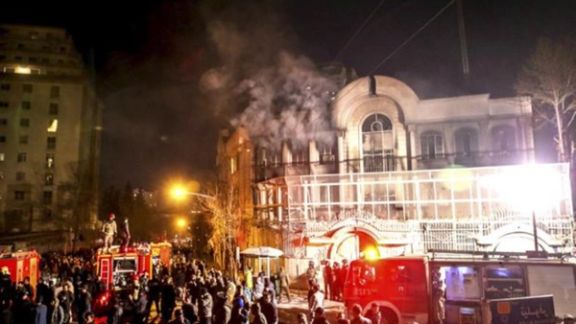
Saudi Arabia confirmed on Sunday it had held its first round of direct talks with Iran's new government last month to reduce tension between the rival powers.
The longtime foes who severed ties in 2016 began talks in April, at a time when Washington and Tehran were discussing reviving a nuclear pact that Riyadh and its allies had opposed.
Three rounds of Saudi-Iranian talks were held in Iraq in the months before Iran's new hardline president, Ebrahim Raisi, took office in August.
Foreign Minister Prince Faisal bin Farhan al-Saud said the latest round had taken place on Sept. 21. He did not give the location of the meeting. The date coincides with a speech by Raisi at the UN General Assembly in New York.
"These discussions are still in the exploratory phase. We hope they will provide a basis to address unresolved issues between the two sides and we will strive and work to realize that," he told a joint news conference.
Saudi Arabia and Iran have backed opposing sides in regional conflicts and political disputes in Syria, Lebanon and Iraq for years, and Saudi Arabia has led an Arab coalition waging war against the Iran-aligned Houthi movement in Yemen since 2015.
Riyadh and Tehran have both said they hope the talks can ease tensions, while playing down expectations of a major diplomatic breakthrough. Iran did not immediately comment on the Sept. 21 round of talks. Riyadh has said it would judge the government of Raisi by the reality on the ground.
Prince Faisal was speaking during a visit to Riyadh by EU foreign policy chief Josep Borrell, who said he had briefed his partners on the prospects for restarting the nuclear talks.
Report by Reuters
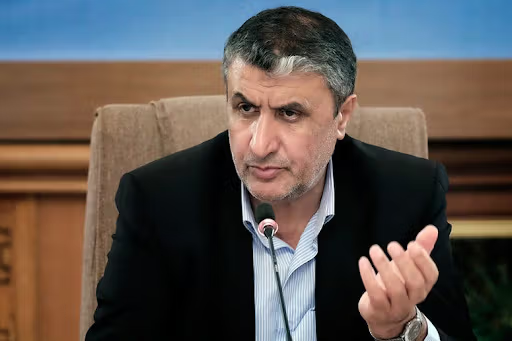
Mohammad Eslami, the head of Iran's nuclear organization has told reporters that Israel was responsible for an attack on one of its nuclear facilities in June.
Earlier on Sunday he told the Russian Sputnik news agency it was regrettable that neither the UN nuclear watchdog, IAEA nor "the countries that have made monitoring claims against" Iran have condemned the "terrorist act" that severely damaged a centrifuge component manufacturing workshop in Karaj, near Tehran, in June.
"Not condemning a terrorist act at an official site under IAEA supervision is tantamount to supporting terrorists," Eslami said in an exclusive interview with Russia's Sputnik news agency Sunday. Iran so far had not officially named Israel or any group as responsible for the attack on the Karaj facility but has accused Israel for the April attack on the Natanz enrichment facility.
Iran and the IAEA have been in a standoff in recent weeks over Tehran's denial of access to IAEA inspectors to service the equipment at the at the TESA Karaj Complex, in north-central Alborz province. Since February Tehran has limited IAEA inspections. The IAEA says the limitations have seriously affected its monitoring activities. The European Union-brokered nuclear talks aimed at restoring the JCPOA that began in Vienna in April were also suspended in June after six rounds of talks and Iran is not showing an active interest in resuming them.
Denial of access to IAEA inspectors can be interpreted as a toughening of Iran’s position in its dealings with the international community over its nuclear program.
Many believe that Tehran is stalling the resumption of talks over reviving the Joint Comprehensive Plan of Action (JCPOA), to add to its highly enriched uranium stockpile to strengthen its position in any future talks with more bargaining chips. Western powers are concerned that the delay in resumption of Vienna talks, and Iran's further violations of its commitments under the deal including higher enrichment levels and stockpiling of highly enriched uranium, may destroy any chances of restoring the deal.
Although the JCPOA only allows Iran to enrich uranium to the level of 3.67%, Tehran has continuously increased its enrichment level since the US withdrawal from the deal in 2018. Tehran has increased its stockpile of 60% enriched uranium from 2.4kg in May to 10kg in August according to IAEA estimates. The amount of 20% enriched uranium has also gone up from 62.8 to 84.3kg.
Meanwhile, it appears that Tehran is seeking concessions from the US to return to the talks. Foreign Minister Hossein Amir-Abdollahian in an interview with the state-run television (IRIB) said while in New York recently, he demanded the release of $10 billion of Iran's frozen funds by the US as a good will gesture to encourage Iran to resume the talks.
Eslami who had earlier on September 30, called the recent report of the International Atomic Energy Agency (IAEA) on access to monitoring cameras at the Karaj facility "unconstructive" and the IAEA director general's statements about man-made uranium particles at three Iranian sites "false", charged in the interview with Sputnik that the issue of man-made uranium particles was "false news" which a "terrorist group -- presumably the Mujahedin-e-Khalq organization – is actively promoting. "The IAEA, as an international body, should not fall for these tricks and become a puppet in the hands of this terrorist group," he declared.